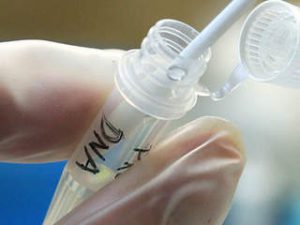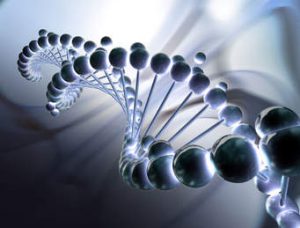
With Dna becoming more affordable to the average person and the genealogy community growing in leaps and bounds the industry has never been better for what’s called “recreational genetics.” The number of people who’ve had their DNA analysed — which involves mailing your saliva or cheek swab to a genetic testing company like 23andMe, AncestryDNA, Family Tree DNA, or My Heritage — doubled in 2017, with more than 12 million customers, or roughly 1 in 25 American adults paying to have their genes decoded.
What these companies are offering can sound enlightening to anybody with even the slightest interest in genealogy. For less than a $100, which is the average cost of a genetic genealogy test — you can learn more about yourself and where your family originated, or find new relatives that you never new exsisted. It’s no secret that researching family history has always been a popular pasttime for individuals, but with the help of the internet and DNA home test kits, the options for getting answers to our roots has exploded, becoming a 6 million dollar industry, as has the number of people taking advantage of these new tools. Since there are so many options for testing, you’re probably asking, “What is the best DNA test for ancestry I can buy?”
I was fortunate enough to get my dna results done for free through a research project where they were researching “how dna affects your habits and health“. By uploading the raw dna to gedmatch.com I have been matched with and connected to cousins I never would have otherwise found and breaking down a brick wall or two along the way.
HomeDNA is a lesser known dna provider that focuses on helping you find people and places, (which are the two basic DNA test for finding ancestry.)
To discover the best DNA test for ancestry you can buy, first determine what’s most important to you:.
Finding an Individual or Individuals
The best DNA test for this purpose is one that gives you access to a database of other users who have allowed their DNA data to be made available publicly. You can upload your own data and then use the sites’ tools to find familial connections within the database.
Pros:
- You can find others within the database participants who share with you a good amount of the same DNA
- You can use data from your DNA to locate others in your family tree who can help to identify individual ancestors
Cons:
- Your DNA data is made public to other subscribers
- You must pay a monthly subscription to access the more advanced features
Locating a Place or Places
Locating ancestors requires a high quality geolocation DNA test that uses the latest technology to help you find locations and even date time stamps. Many records for families are sketchy or simply wrong once your efforts take you back beyond 1600 AD.
Pros:
- It sheds light on the origins of family traits
- A location-focused DNA test for ancestry can open up new clues for research by revealing unexpected locations where your ancestors lived or migrated
Cons:
- Depending on the DNA you inherited and when your DNA signature had significant changes, you may not get results for comparatively recent locations (within the last 200 years)
- It does not provide a shared database to help you locate individuals
- Limited Time Offer! Save $50 + Get Free Shipping on This DNA Test for ancestry! Use code: GPSCJ50 at HomeDNA.com!

The Benefits of GPS Origins®:
- A revolutionary, next-generation DNA test for ancestry takes customers deep into their family roots with unparalleled specificity.
- The only DNA test with bio-geographical targeting capability to the town or village level.
- Identifies when and where the customers DNA formed by matching the populations that came together to create a genetic line leading to you.
- Traces the migration route of both maternal and paternal lineages back to their origins and dates the age of their DNA signature
- Provides detailed stories helping to explain DNA mixture events such as wars, famines, and migrations
- Details specific gene-pool percentages
- Developed by a leading population geneticist from the University of Sheffield in England
HomeDNA offers two types products in the ancestry category:
one that requires the collection of DNA for testing and reporting,
one that uses a raw-data upload, for customers who have already tested their DNA with other popular ancestry companies.
They have a trusted laboratory keeping DNA confidential and is never sold, having tested for 20 years and handling over 1 million samples from 168 countries.
Additional opportunities exist with HomeDNA™ lifestyle testing. This targeted selection of easy, at-home genetic tests will help consumers make better health and wellness choices and provide important answers about family relationships both past and present. Brought to you by DNA Diagnostics Center (DDC), this innovative product line includes:
HomeDNA™ Ancestry Starter Analysis + Report
Home DNA™ Healthy Weight Analysis + Report
HomeDNA™ Skin Care Analysis + Report
HomeDNA™ Food & Pet Sensitivity Analysis + Report
For Pets: DogDNA & Life Plan; Mixed Breed Identification & Life Plan; CatDNA & Life Plan
HomePaternity DNA test
When looking for the best DNA test for ancestry it all depends on the kind of information that is most important to you. Just be sure that, whatever type of test you choose, you take a little time to also research the provider.

This post is very interesting. My cousin had her DNA tested, and it led her
to England. We found out our great grand father was the Captain of
the Carpathia who picked up the pasengers on the Titanic.
Great post, but I would shorten your lines up so that it would
be easier to read.
thank you for your feedback. Wow how interesting…now you will have to do some Titanic research eh?
A very good and informative post about DNA, I have learnt a lot about DNA in your post and I am tempted to order this “HOMEDNA collection kit”. Thank you.
They do offer up a bunch of information. Makes for interesting history!
This article is good and informative about DNA. It makes me feel excited just like when I watch a series e.g. CSI that can use DNA to find a murderer.
Through Ancestry DNA, we found 3 first cousins we didn’t know we had. They are all women, were all adopted as infants, and knew little to nothing about their blood relatives. They were the daughters of our father’s youngest brother, and none of us knew he had any children. Now we wonder if Bobby has more kids out there – kids who we don’t know about because they haven’t take Ancestry DNA tests, yet.